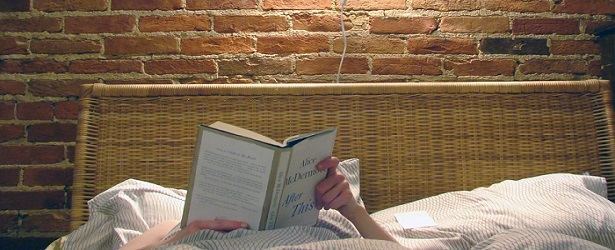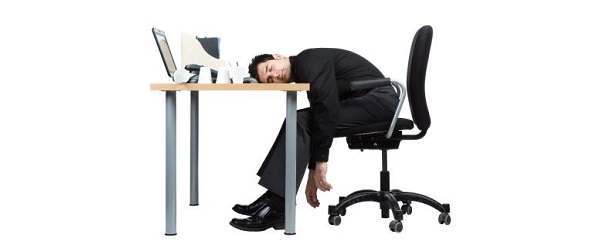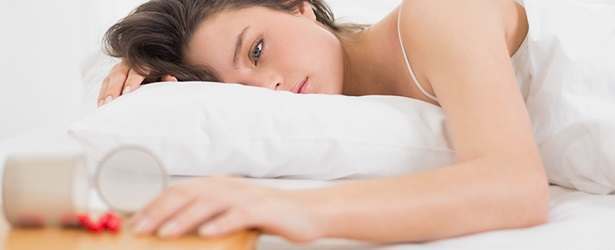
Insomnia and Weight Gain
The question: I’m concerned my insomnia may be causing my weight gain. Can this be verified? Can your diet influence the quality of your sleep?
The answer: Yes there is substantial data that points to a correlation between a lack of sleep and weight gain and this is especially true when it comes to packing on those extra pounds in the abdominal region. Research has shown that when you do not get sufficient rest your body’s metabolism slows and it secretes hormones that increases your appetite causing you to eat more.
 Interestingly, sleeplessness also increases cortisol which is also known as the stress hormone. If this hormone is consistently secreted then it is likely to lead to fat build up around the abdominal lining. Even though the findings indicate that insomnia can result in weight gain. This however, may not necessarily be the case, because there a myriad of factors that may also be responsible. Your calorie intake, the food you eat, the portion that you eat, when and how often you eat, all play crucial roles in determining whether or not you will witness an increase in you body mass index.Nevertheless, chances are you may however need to change your diet. First of all, you should examine how much caffeine you consume on a daily basis.
Interestingly, sleeplessness also increases cortisol which is also known as the stress hormone. If this hormone is consistently secreted then it is likely to lead to fat build up around the abdominal lining. Even though the findings indicate that insomnia can result in weight gain. This however, may not necessarily be the case, because there a myriad of factors that may also be responsible. Your calorie intake, the food you eat, the portion that you eat, when and how often you eat, all play crucial roles in determining whether or not you will witness an increase in you body mass index.Nevertheless, chances are you may however need to change your diet. First of all, you should examine how much caffeine you consume on a daily basis.
Consuming more than a few cups can leave you hyperactive as your nervous system becomes overactive and this can lead to insomnia.
 In fact even a few cups of caffeinated coffee can contribute to sleeplessness because caffeine reduces the effectiveness of adenosine a sleep inducing chemical found in the brain.I would therefore recommend that you refrain from having caffeinated drinks at least eight hours before you retire. In fact, it would be in your best interest if you could eliminate caffeine from your diet. However, if this is much too great a feat for you to achieve,then reduce your daily intake to no more than 200 milligrams of caffeine.Alcohol consumption can also throw your sleep cycle out of sync and can result in you being up at some odd hours at nights. Eliminate alcohol for a week or two and see if this will stop your insomnia.
In fact even a few cups of caffeinated coffee can contribute to sleeplessness because caffeine reduces the effectiveness of adenosine a sleep inducing chemical found in the brain.I would therefore recommend that you refrain from having caffeinated drinks at least eight hours before you retire. In fact, it would be in your best interest if you could eliminate caffeine from your diet. However, if this is much too great a feat for you to achieve,then reduce your daily intake to no more than 200 milligrams of caffeine.Alcohol consumption can also throw your sleep cycle out of sync and can result in you being up at some odd hours at nights. Eliminate alcohol for a week or two and see if this will stop your insomnia.
If you are struggling to have a good night’s rest then that late night meal could very well be the culprit. Be sure to give yourself at least a three hour window before you tuck yourself in and be mindful that a large serving,especially one that includes a lot of fat will come back to haunt you after the clock strikes midnight.
Have a protein rich breakfast and lunch since the dopamine will keep you active and mentally agile but keep away from a protein rich diet at night. Lastly, do not consume fluids within two hours of going to bed so that you will not be prematurely awakened by primal urges.If you still struggle with insomnia after following this dietary regime, then you should seek medical advice in order to pinpoint the direct cause. Good luck!
TOP 5
INSOMNIATreatments |
|||||
| InsoRelief | ProHealth FibroSleep | Best Health Sleep Dissolves | Zen Life Supplements Zen Night | Nutrition Breakthrough Sleep Minerals | |
|---|---|---|---|---|---|
| 1 | 2 | 3 | 4 | 5 | |
| Price (1 bottle) Price (6 bottles) Best Value |
$49.95 $139.80 |
$32.49 $194.94 |
$29.95 $179.70 |
$44.95 $149.94 |
$23.95 $160.65 |
| Overall Rating | 99.50% | 87.30% | 86.50% | 78.90% | 73.50% |
| Effectiveness |





|





|





|





|





|
| Speed of Results | Extremely Fast | Good | Good | Average | Average |
| Quality of Ingredients | Premium | Good | Good | Good | Average |
| Customer Satisfaction Evaluation | 99.40% | 85.30% | 84% | 76.20% | 73% |
| Safety Evaluation | Safe for Use | Safe for Use | Safe for Use | Safe for Use | Safe for Use |
| Customer Service Rating |





|





|





|





|





|
| Reorder Rate | Highest | Good | Good | Average | Average |
| Return Policy | Risk Free | Risk Free | Risk Free | Risk Free | Not Available |
| Success Rate | 99.40% | 87.10% | 85.70% | 78% | 73.30% |

 Subscribe Now
Subscribe Now











